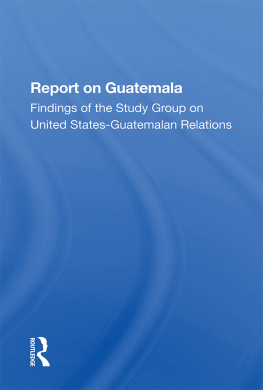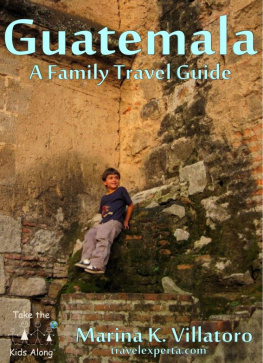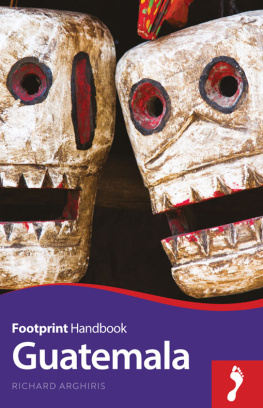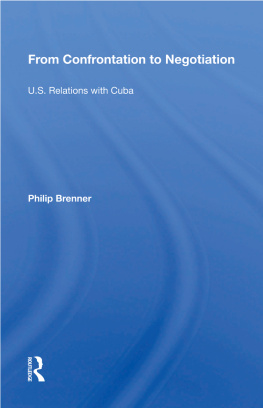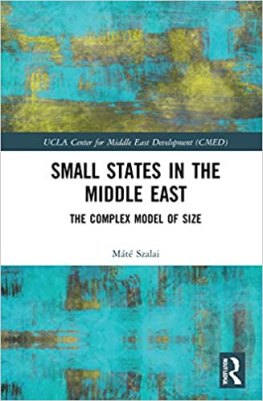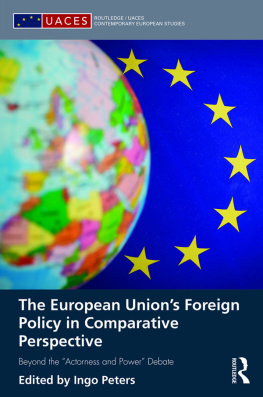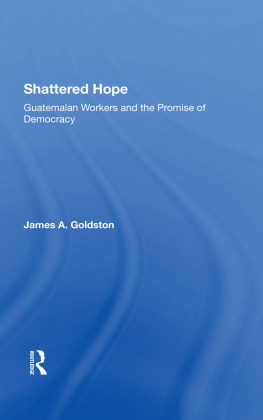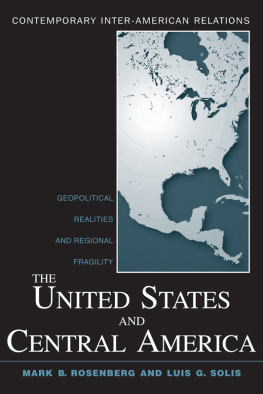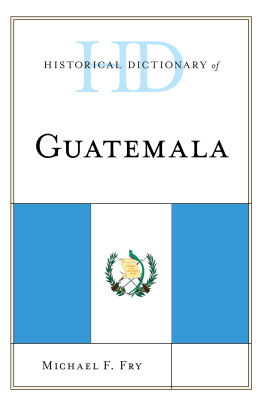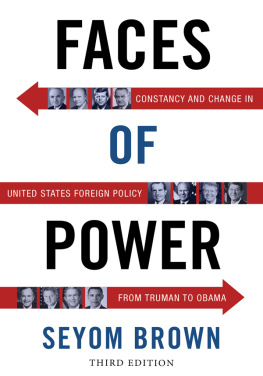SAIS PAPERS IN INTERNATIONAL AFFAIRS
Report on Guatemala
Sais Papers In International Affairs
Number 7
Report on Guatemala
Findings of the Study Group on United StatesGuatemalan Relations
Central American
and Caribbean Program
First published 1985 by Westview Press
Published 2019 by Routledge
52 Vanderbilt Avenue, New York, NY 10017
2 Park Square, Milton Park, Abingdon, Oxon OX14 4RN
Routledge is an imprint of the Taylor & Francis Group, an informa business
Copyright 1985 by The Johns Hopkins Foreign Policy Institute, School of Advanced International Studies (SAIS)
All rights reserved. No part of this book may be reprinted or reproduced or utilised in any form or by any electronic, mechanical, or other means, now known or hereafter invented, including photocopying and recording, or in any information storage or retrieval system, without permission in writing from the publishers.
Notice:
Product or corporate names may be trademarks or registered trademarks, and are used only for identification and explanation without intent to infringe.
Library of Congress Catalog Card Number: 84-52852
ISBN 13: 978-0-367-28568-5 (hbk)
THE JOHNS HOPKINS FOREIGN POLICY INSTITUTE
Harold Brown
Chairman
Simon Serfaty
Executive Director
Robert E. Osgood
Director of Research Codirector, Security Studies Program (on leave)
Wilfrid Kohl
Director International Energy Program
Kristen E. Carpenter
Managing Editor Publications Program
Philip Geyelin
Editor-in-Residence
Michael Vlahos
Codirector Security Studies Program
Archie Albright
Executive-in-Residence
Christian A. Herter, Jr.
Fellow
Katharine J. Hagedorn and Steve Fletschmann
SAIS Review
George R. Packard
Dean, School of Advanced International Studies
The Johns Hopkins Foreign Policy Institute (FPI) was founded in 1980 and serves as the research center for the School of Advanced International Studies (SAIS) in Washington, D.C. The FPI is a meeting place for SAIS faculty members and students, as well as for government analysts, policymakers, diplomats, journalists, business leaders, and other specialists in international affairs. In addition to conducting research on various policy-related international issues, the FPI sponsors conferences, seminars, and round tables.
The FPI's research activities are often carried on in conjunction with SAIS's regional and functional programs dealing with American foreign policy, Latin America and the Caribbean Basin, Africa, the Middle East, the Soviet Union, U.S.-Japan relations, Canada, security studies, international energy, the Far East, Europe, and international economics.
FPI publications include the SAIS Review, a biannual journal of foreign affairs, which is edited by SAIS students, and SAIS Papers in International Affairs, a monograph series which is copublished with Westview Press in Boulder, Colorado. For additional information regarding FPI publications, write to: Managing Editor, FPI Publications Program, School of Advanced International Studies, The Johns Hopkins University, 1740 Massachusetts Avenue, N.W. Washington, D.C. 20036.
About the Book
The findings of the Study Group on United States-Guatemalan Relations, organized under the auspices of the Central American and Caribbean Program (CACP) at the School of Advanced International Studies, The Johns Hopkins University, focus on the nature of Guatemalan politics, possibilities for democratization, and the options available to U.S. policymakers during the regime of General Rios Montt. Also included in this book are two papers, commissioned by the CACP, that present starkly contrasting views of Guatemala in order to provide a background for the study group's discussions. As anticipated by study group members, the Rios Montt regime fell from power after the initial writing of this report, but their findings nevertheless provide an excellent overview of the debate on U.S. policy toward Guatemala.
The Central American and Caribbean Program at the School of Advanced International Studies, The Johns Hopkins University, is directed by Riordan Roett. The study group was chaired by the Honorable William H. Luers, deputy assistant secretary of state during the Carter administration and former ambassador to Venezuela. He is currently ambassador to Czechoslovakia,
Ambassador William H. Luers, chairman
Luigi Einaudi, U.S. Department of State
George Fauriol, Center for Strategic and International Studies, Georgetown University
Guy Gugliotta, Miami Herald
Lawrence Harrison, Center for International Affairs, Harvard University
Margaret Daly Hayes, U.S. Senate Foreign Relations Committee
L. Craig Johnstone, U.S. Department of State
John McAward, Unitarian Universalist Service Committee
John McShane, Central Intelligence Agency
Janice Brotherton, Central Intelligence Agency
Ann Nelson, MacLean Magazine
Reggie Norton, Washington Office on Latin America
Susan Kaufman Purcell, Council on Foreign Relations
Tom Quigley, U.S. Catholic Conference
Stephen Rosenfeld, Washington Post
Caesar D. Sereseres, The Rand Corporation
Carol Smith, Duke University
Lars Schoultz, University of North Carolina
Ambassador Larry Pezzullo
Jose Muratti, U.S. Department of Defense
Willy Van Ryckeghem, Inter-American Development Bank
Juan Mendez, America's Watch Committee
Tom Farer, Rutgers University School of Law
Pamela Falk, Center for Inter-American Relations
Francisco Fernandez, Central Intelligence Agency
Martha Muse, The Tinker Foundation
Alejandro Portes, Executive Committee, CACP, The Johns Hopkins University
Steve Schlesinger, Coauthor of Bitter Fruit
Paul Sigmund, Princeton University
Robert Trudeau, Providence College
Abraham Lowenthal, Woodrow Wilson International Center for Scholars, The Smithsonian Institution
Aryeh Neier, America's Watch Committee
Otto Reich, Agency for International Development
Holly Burkhalter, House Subcommittee on Human Rights and International Organizations
Riordan Roett, director, CACP, SAIS
Piero Gleijeses, SAIS
Roberto Alvarez, program associate, SAIS
Ann Goldman, SAIS
Michael T. Clark, SAIS
Ilya Prizel, SAIS
Flavia Baschieri, SAIS
In January 1983 the Central American and Caribbean Program (CACP) at the School of Advanced International Studies (SAIS), The Johns Hopkins University, invited a select group of area specialists including academics, journalists, government analysts, business leaders, and other experts on Guatemala and U.S. foreign policy to review developments in that nation and to outline U.S. policy options. A first meeting was held on January 25 followed by another on April 13--more than a year after the coup that brought Rios Montt to power. Both meetings were held at SAIS in Washington, D.C.
As background for the discussions, the CACP commissioned two papers from Drs. Caesar D. Sereseres and Piero Gleijeses providing contrasting perspectives on recent Guatemalan history, the significance of the Rios Montt presidency, the nature of Guatemalan politics since 1950, and how U.S. foreign policy should respond to the guerrilla movement.

